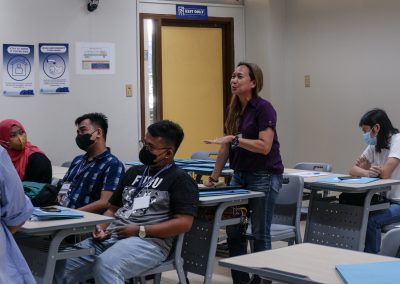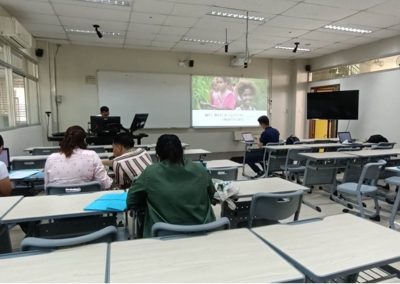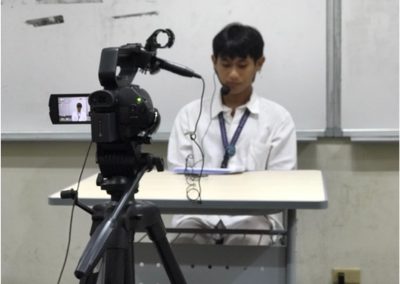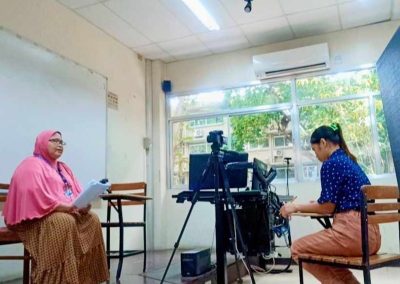The Philippines has a diverse and wide range of languages that are slowly disappearing faster than it is documented. In Mindanao, there are 18 ethnolinguistic groups from the indigenous (The Subanen, Manobo, Blaan, Tboli, Mandaya, Mansaka, Tiruray, Higaonon, Bagobo, Bukidnon, Tagakaulo, Banwaon, Dibabawon, Talaandig, Mamanwa, and Mangguangan). While there are 13 ethnolinguistic groups in the Moro communities (Maranao, Maguindanao, Tausug, Ilanun/Iranun, Kalagan, Sangil, Yakan, Sama, Palibugan, Jumamapun, Palawanon, Molbog) not to mention their sub-tribes of each ethnolinguistic groups. Younger generations have adapted to speaking mixed languages influenced by school, friends, social media, and even books. It is not wrong to learn a new language, but it has become dominant in how they speak and slowly forget their mother language. Since language has been evolving, the need to document it is of urgent necessity.
The Oceanic and Southeast Asian Navigation (OCSEAN) project funded by the European Commission with Marie Sklodowska-Curie research and Innovation and Staff Exchange grant. This initiative was to re-evaluate the understanding of human origins, history, and diversity in the Asia-Pacific region through linguistics, archeology, anthropology, and genomics. The implementation of the language documentation workshop was done in Davao City and Ifugao, respectively. The aim is to understand the significance of language conservation through documentation.
The workshop provided the participants with a comprehensive overview of how to collect and process linguistic data on a target language: lexical data (wordlist) and textual data. They learned how to transcribe the data and archive and store it in an accessible and transparent manner.
The Davao City workshop was in collaboration with the Ateneo Internationalization for Mindanao Office, Ateneo de Davao University – Department of Anthropology, and Uppsala University, Sweden. There were 14 participants in attendance representing the Bagobo Tagabawa, Umajamnon, Higaonon, Tagakaulo, Sama, Maguindanao, Tausug, Kagan, Butuanon, Tandaganon, and Iranun. The language documentation workshop was facilitated by George Saad, Ph.D., of Palacky University, Czech Republic. The activity went on from May 29-June 2, 2023, for the lecture workshop in two (2) days, and the rest of the days were spent on their audio-video recording of the wordlist.
The activity entitled “Indigenous Heritage Conservation Through Documentation Workshop” culminated in sharing their experience of documenting their own languages. It was not an easy task to recall their own language, and they found the need to call for assistance from their parents and elders but realized the significance of recording their vanishing language is as important as breathing.
Lastly, the need to document it will help future generations learn and re-learn their language. By now, there are initiatives started by some ethnolinguistic groups to create dictionaries and storybooks in their IP education or convert church songs into their language, which able them to sustain it and be assured that it is spoken for the rest of their lives. For the participants, language is their identity. Language is a cultural heritage.
Reference: https://guides.library.manoa.hawaii.edu/c.php?g=105238&p=687428
Article and Photos by Ms. Maria Sheila Z. Labos (OCSEAN Member)
Dr. George Saad from Palacky University, Czech Republic, and Dr. Maximilian Larena from Uppsala University, Sweden, facilitate engaging and informative sessions during the Indigenous Heritage Conservation Through Documentation Workshop.

Aside from the lecture, the participants actively engage in project work, recording the wordlist through audio-video documentation.

Article and Photos by Ms. Maria Sheila Z. Labos (OCSEAN Member)








